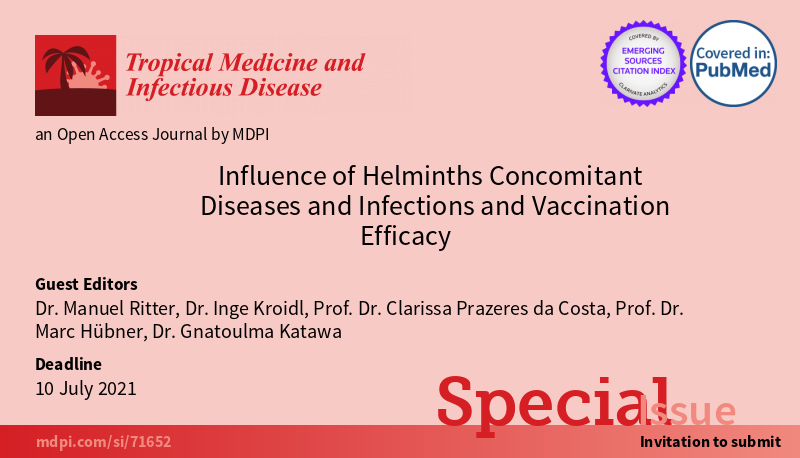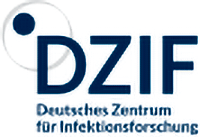10.01.2021
Dear Colleagues,
Helminths are prevalent worldwide and it is estimated that more than 1 billion people are infected with these parasitic worms. It is known that helminth infections dampen and modulate host immune responses via the induction of regulatory B and T cell subsets and Th2 cell populations, and suppression of Th1 and pro-inflammatory cell populations and their cytokine and chemokine secretion. Although, this immunomodulation lead in most infected people to an asymptomatic clinical picture it is suggested that helminth-driven immune regulation increases susceptibility and worsened disease course of concomitant bacterial, viral and parasitic infections and lower vaccination efficacy. On the other hand, helminths have been shown to protect against autoimmune and metabolic diseases. However, knowledge about helminth-driven immunological mechanisms and their influence on unrelated infections and diseases and vaccination programmes are missing. Thus, further research is urgently needed to decipher the risk factor as well as the potential of helminths.
This Special Issue aims to address open questions how helminths influence concomitant infections and diseases as well as vaccination efficacy, which is an important issue to meet the challenges of the "sustainable developmental goals (SGD)" put forward by the United Nations, in particular, Goal 3 "Good Health and Well-Being". Manuscript topics may include basic research questions using preclinical animal models as well as clinical, observational and interventional studies.
Deadline for manuscript submissions: 10 July 2021.
Additional information about this special issue here
Guest Editors
Dr. Manuel Ritter
Dr. Inge Kroidl
Prof. Dr. Clarissa Prazeres da Costa
Prof. Dr. Marc Hübner
Dr. Gnatoulma Katawa



